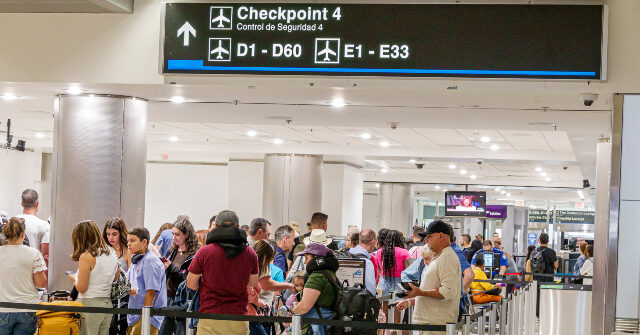Fast-Track Security Lines for Illegal Migrants: A Controversial Policy Under the Biden Administration
Introduction to the Policy and Its Revelations
In 2021, under the presidency of Joe Biden, a controversial policy was implemented by the Transportation Security Administration (TSA) that allowed illegal migrants to use fast-track lines at airport security checkpoints. This policy, which was not publicly disclosed at the time, permitted migrants to bypass traditional security protocols by using documents provided by the Department of Homeland Security (DHS). The existence of this policy was revealed through a document obtained by journalist Breanna Morello via a Freedom of Information Act (FOIA) lawsuit. The document outlines how migrants could present various DHS-issued documents, such as arrest warrants, "Notice to Appear" court appointments, and Alien Booking records, to expedite their passage through security checkpoints. These documents could even be displayed electronically on personal devices, allowing migrants to skip the lengthy verification processes that many American travelers face.
The Policy’s Implementation and Documents Accepted
The TSA document reveals that the policy was intended to address the challenges posed by a large influx of migrants seeking to pass through airport security without traditional forms of identification. According to the document, the agency allowed migrants to use DHS-provided documents to bypass standard ID checks. This included the use of the CBP One™ app, which significantly reduced the time it took to verify an individual’s identity. The average cycle time for ID verification using CBP One™ was just 1.48 minutes, compared to 12.87 minutes for the previous system, resulting in an 88.5% reduction in processing time per individual. This policy was presented as a solution to the "severe burden" placed on TSA checkpoints by the large number of migrants without proper identification.
Criticisms and Controversies Surrounding the Policy
The revelation of this policy has sparked significant controversy, with critics raising concerns about national security and the potential risks associated with allowing unvetted migrants to bypass security checks. Journalist Breanna Morello, who uncovered the policy, has criticized the Biden administration for jeopardizing national security by dispersing unvetted migrants across the country. She questioned how many potential terrorists or dangerous individuals might now be residing in the U.S. as a result of this policy. Videos have also surfaced showing migrants being escorted past waiting American travelers by government-hired personnel, further fueling public outrage and concerns about the fairness and security of the system.
Economic and Political Motivations Behind the Policy
Critics of the policy have also pointed to potential economic and political motivations behind the Biden administration’s decision. It has been suggested that the administration aimed to expand the economy by increasing the number of low-wage workers, consumers, and renters. By allowing millions of migrants to enter the country, the administration may have been attempting to bolster the economy while also catering to Democrat-aligned investors and political interests. However, this approach has been criticized for prioritizing economic gains over national security and the well-being of American citizens, who may face increased competition for jobs and resources.
The Policy’s Current Status and Future Implications
The future of this policy remains uncertain, but it appears that the program may have been discontinued or scaled back under the renewed security measures implemented by President Donald Trump. With the border influx significantly reduced to nearly zero, the need for such a policy may no longer exist. However, the revelation of this program has raised important questions about the balance between immigration policies, national security, and economic interests. The controversy surrounding this policy serves as a reminder of the challenges faced by governments in managing migration while ensuring the safety and prosperity of their citizens.
Conclusion: Balancing Security, Economy, and Fairness
The controversy surrounding the TSA’s fast-track policy for illegal migrants highlights the complexities of immigration policies and their far-reaching implications. While the policy was presented as a solution to streamline security processes and address the challenges posed by a large influx of migrants, it has raised significant concerns about national security, fairness, and economic motivations. As the U.S. continues to grapple with immigration issues, it is crucial to find a balance between ensuring national security, fostering economic growth, and maintaining fairness for all Americans. The revelation of this policy serves as a call for greater transparency and accountability in shaping and implementing immigration and security policies.


